



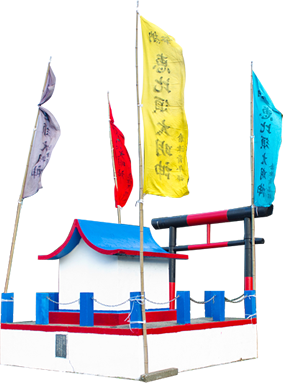
"Ebisu Matsuri" is a festival held amongst the seaside communities of Akune every year on January 10th. Akune has a very prosperous fishing industry, so this traditional event is held to pray for a bountiful fish harvest and safe voyages for the fishing boats. Numerous people in the fishing industry gather at the Kuratsu Fisherman Training Institute, where the men sing send-off songs and make offerings of shochu to Ebisu. With each mouthful of shochu they pray for safe journeys and plentiful fish hauls. After a series of ceremonies, they march around the harbor with a ceremonial rope called a shime-nawa, and once they reach a small shrine by the sea they return Ebisu and the festival concludes.

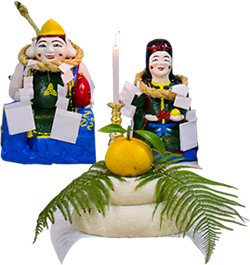
Akune City's Ryo-ko and Kuratsu-ko ports are two of its most representative natural areas. In these locations, the local fishing associations are in charge of the customary Ebisu Matsuri. At the start of every year, in a large plaza at the Fisherman Training Institute they hoist up large banners meant to indicate a big haul of fish. Two decorated men sit at altars where the god Ebisu is enshrined. At 5PM men dressed in masculine kimonos gather, and a traditional ceremony begins in which drink toasts are exchanged. The young fishermen join together to sing a send-off song called "Yoikon-bushi." The participants offer their shochu to Ebisu, shouting "Ebisu, please let us catch lots of fish this year too!"
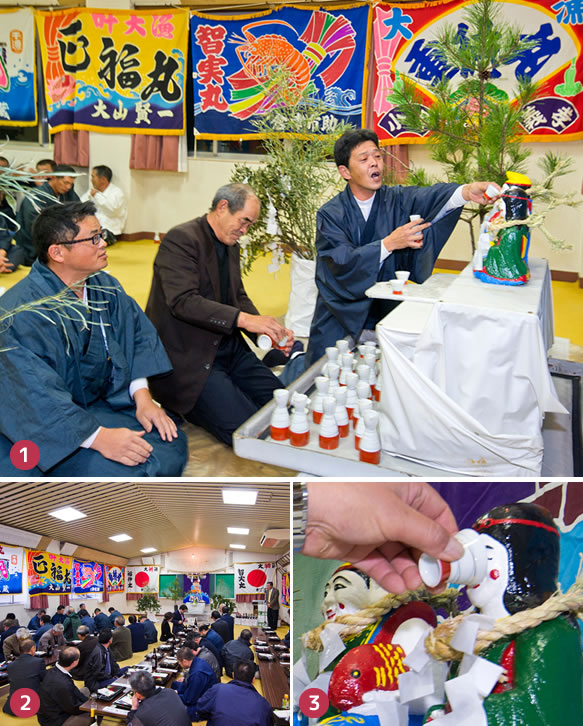 ①Offering shochu to Ebisu ②The men, clad in traditionally masculine kimonos ③Offering shochu to Ebisu
①Offering shochu to Ebisu ②The men, clad in traditionally masculine kimonos ③Offering shochu to Ebisu
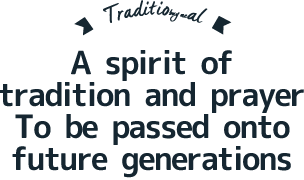
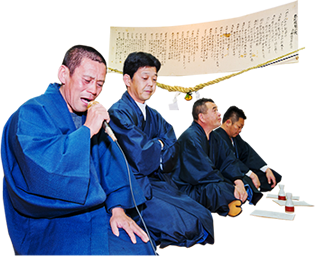
The men sing "Yoikon-bushi" together for about an hour, and after that it comes time for Ebisu to go home. The men traditionally put paper in their mouths so they cannot speak, then march through the harbor carrying a "shime-nawa" rope (a talisman against evil.) As they draw closer to the shrine, all of the men start running, then the small shrine is purified with firewood as a traditional offering to the two Ebisu statues. Once the participants have completed their shrine visit, the matsuri is concluded. A representative for the fishermen, when asked about this event, said: "There are very few successors, but this is a tradition that we would like to pass down to future generations."
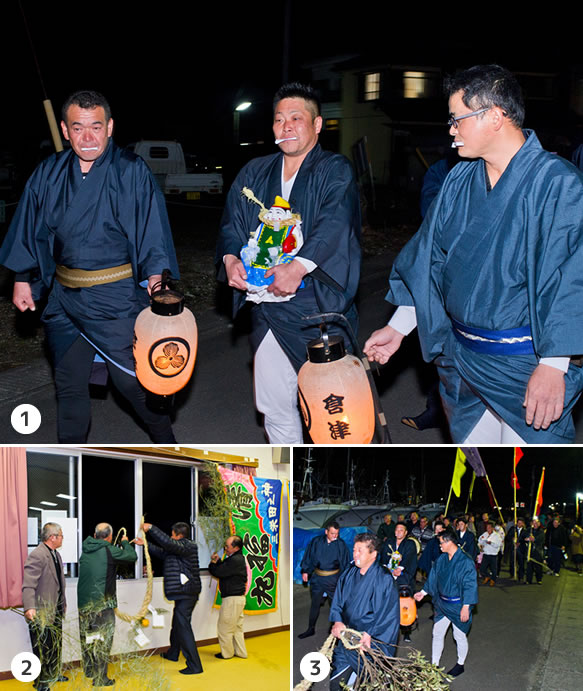 ①The men traditionally put paper in their mouths so they cannot speak ②It's time for Ebisu to return home ③They march through the harbor carrying a shime-nawa rope
①The men traditionally put paper in their mouths so they cannot speak ②It's time for Ebisu to return home ③They march through the harbor carrying a shime-nawa rope
MAP&INFOMATION